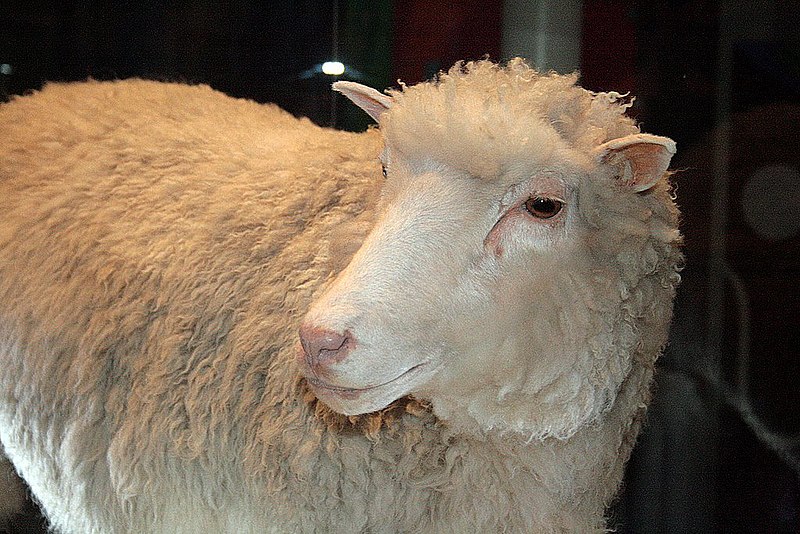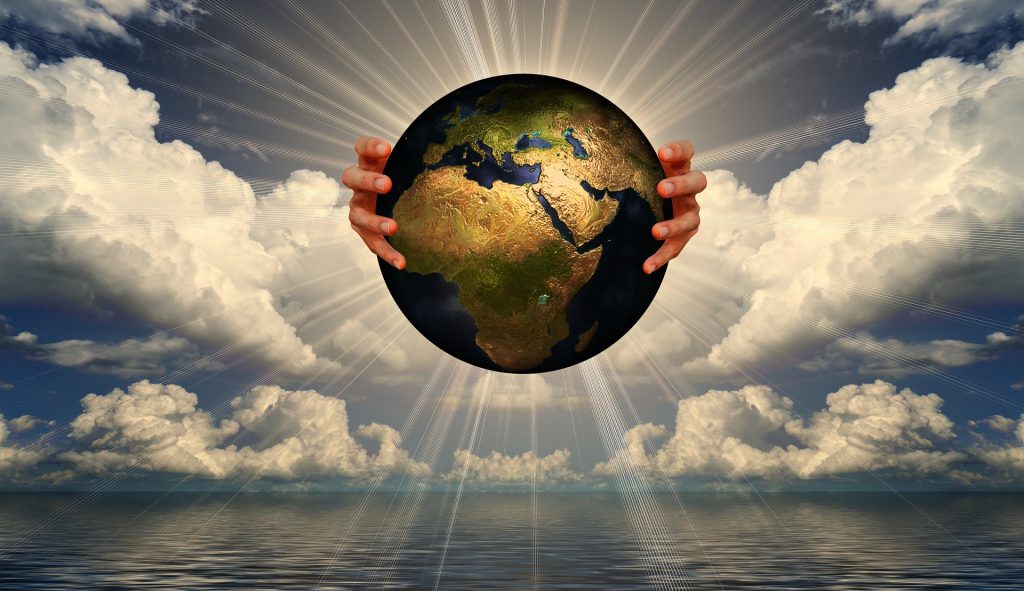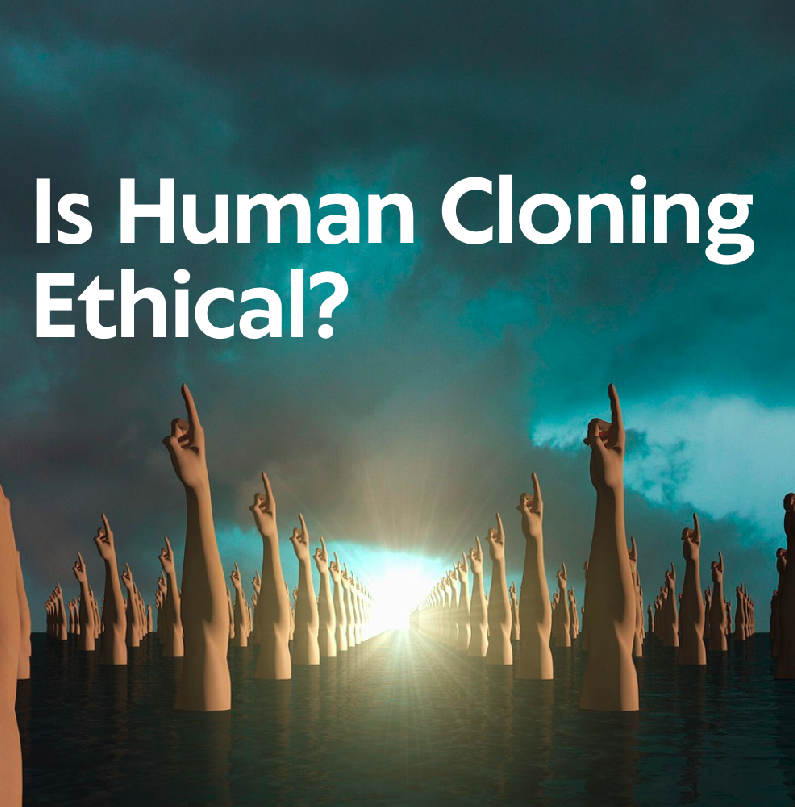Human reproductive cloning is considered unethical as it violates the principle of human dignity and freedom. People from all over the world have condemned human cloning as there are certain risk factors that are linked with it. One of the major risks is the likelihood of the loss of life during the process. In this article, we would be covering some of the major factors and reasons why human cloning is considered unethical.
But first let’s understand what is human cloning.
Human Cloning
Human cloning is the process of creating an identical copy of a human which is also called a clone. This is also known as artificial human cloning as this isn’t the process of natural conception where a baby is delivered but is the work of reproducing human cells and tissues.

There are two types of human cloning; Therapeutic cloning and Reproductive cloning.
Therapeutic Cloning
In this, the major goal of cloning is to develop or create organs for transplantation purposes. However, some people reject the idea of therapeutic cloning as they believe that this is the process of destruction of human life. Although, in therapeutic cloning, life isn’t created beyond the embryonic stage.
Reproductive Cloning
In reproductive cloning, the cloned embryo is implanted in the natural or artificial uterus. Reproductive cloning is experimented on over the last 40 years. However, in the year 1990, the reproductive cloning technique underwent a significant change, and the first-ever cloned sheep named Dolly was born.

Human cloning has been criticized by many people as this process interferes with natural birth and has raised issues about the nature of reproduction. This also created a buzz that human cloning might be used for global wars by the powerful forces of the world.
Human cloning also raises the question of once considered a popular notion – Eugenics. According to Eugenics, the human species could be improved and would be made advanced as per the required traits by the needed characteristics as cloning is used to create or breed humans possessing better traits and qualities. Hence, this is unethical toward the entire human race.
Apart from this, there are a few who support human cloning claiming this could save many lives and would help sick people.
There are a few countries that have shown their concern regarding human cloning and have passed various laws to prohibit it. For example in 2005, the United States have passed a nonbinding declaration on human cloning which states that all the necessary measures should be taken to prohibit all forms of human cloning. It also states that human cloning is an ethical way and is incompatible and raises questions on human dignity and moral values.
The United Kingdom has issued licenses for cloning human embryos for therapeutic and research purposes. This license allows the embryos to be destroyed by the 14th day. As this is the time period when the embryos begin to develop the sign of a nervous system.
Why Human Cloning is Considered Unethical?
Interference In God’s Way
Human cloning is considered unethical majorly because it interferes with the creation of God. It insults God’s most beautiful creation and the process of marriage through which human life is created.

A human clone is manufactured in the laboratory unlike how a human baby is born through the conjugal act of marriage. A baby is born naturally with love and blessings, but a cloned human has no mother and father.
Organ Harvesting and Slavery
Experts fear that human cloning would lead to the production of a race which would specifically be used for their organs. Organ harvesting is one such critical topic that needs the full attention of the masses. Maybe in our next article, we would shed some light on organ harvesting and how it works.
Have you seen the movie “The Island” ? In the movie after Lincoln learns the compound inhabitants are clones used for organ harvesting as well as surrogates for wealthy people in the outside world, he attempts to escape with Jordan Two Delta (Scarlett Johansson) and expose the illegal cloning movement.

Even if human cloning wouldn’t used for organ harvesting, yet, it is a potential threat to society as it could even result in slavery. There is a possibility that the cloned humans could be used as slaves for various purposes.
Clones May Have Different Personalities
The other important thing to notice is that the cloned individual whether a girl or a boy, will not be the same as the donor. There is a possibility that the cloned human may have a completely different personality – a complete gentleman’s clone may very well become a criminal.
The personality of a person is based on various factors like the external environment, and the experiences a person goes through in his/her life. Everyone has different experiences throughout the course of their life.

Whilst the cloned human produced would not be the same as its donor because a new baby would be produced not an identical adult. There would be changes in other things as well like interests, style, character, etc.
Moral Concerns Regarding Diversity of Human Gene
Human cloning is an unethical process as it could lead to the creation of specific qualities in cloned humans. This means that we can create people with selective qualities and traits that we want. This creates the moral concerns of violating a person’s right to individuality. People fear that cloning would be used to create a certain class of people purposely used for organ donation or another purpose.
This could also lead to discrimination against the people. Furthermore, human cloning would reduce the diversity of the human gene. People would simply clone people consisting of traits they are looking for.
This could also create divisions between certain classes of people. It could further expand the gap between the rich and the poor.
It is also debated that human cloning may create a massive societal gap between naturally born babies and the ones cloned in laboratories and can lead one of them to depression.
World Human Cloning Policies
In the year 2008, around 70 countries banned human cloning. Let us take a look at some of the policies of countries.
There are certain policies created by some countries to stop human cloning. This ranges from complete prohibition to cloning for organ donation. Countries like France, Germany, and Russia have completely banned human cloning whereas countries like Japan, UK, and Israel have banned human reproductive cloning but have permitted therapeutic cloning for the purpose of organ donation.
Various countries approve the therapeutic cloning as it could solve many health-related issues which are difficult to find any solution to.
Some Facts
- In 2001, scientists led by Panayiotis Zavos announced that they would clone a human in two years’ time.
- The cloned individual could not be called the sibling, daughter, or son of the donor. He/She would have the relationship of being a clone of the donor.
- A sea urchin was first cloned in the year 1880.
- A clone will always be younger than the donor.
A human clone created in the laboratory would always be called an artifact or the work of science. In addition, there is no guarantee as to the authenticity of human cloning. It could either go in favor of humans or could even lead to destruction.
The genetic identity of a person should remain unique; human cloning not only attacks the individuality of a person but leaves no scope for a distinctive personality. It is the result of deliberate creation which imposes genetic identity on a future human.
Creating humans of the same personality would lead to a societal imbalance where people would often demand the creation of intelligent personalities. This way the biological human race would feel a threat to its existence.
The possible threats like a question mark on human’s existence can immensely affect society on a mass level. Hence, it is important to use technology carefully and responsibly.
Cloning can also lead to the comparison between biologically born humans and clinically prepared cloned humans.
Hence, human cloning shouldn’t be practiced as it can increase the gap between different human races.




